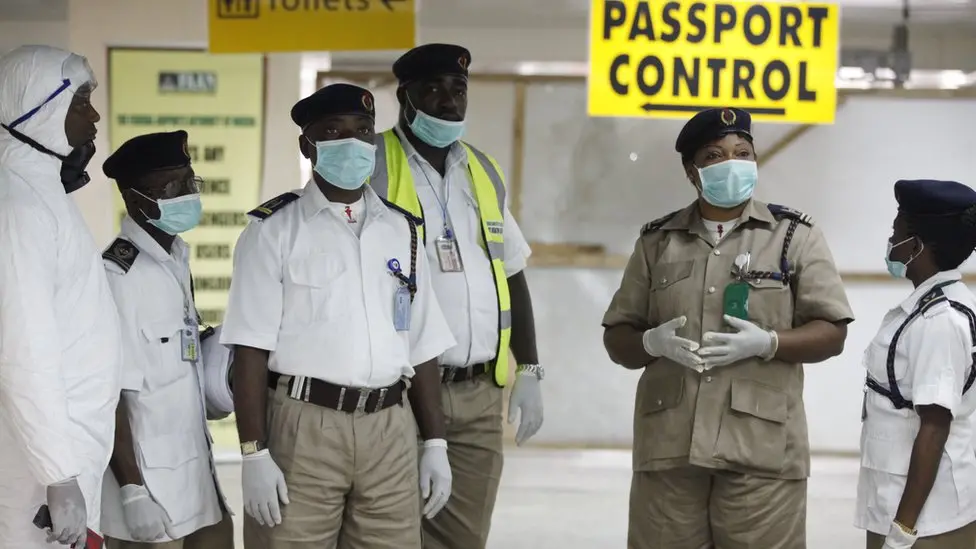THE Federal Government has intensified surveillance at all points of entry into Nigeria following confirmation of a fresh outbreak of the Ebola Virus Disease (EVD) in the Democratic Republic of Congo (DRC).
The Director of Port Health Services at the Federal Ministry of Health and Social Welfare, Dr Akpan Nse, disclosed in an interview with News Point Nigeria on Friday that stricter border checks, expanded health screening, and reinforced staff deployment had been put in place nationwide.
Health authorities in the DRC declared an outbreak of Ebola in Kasai Province earlier this week, reporting 28 suspected cases and 16 deaths, including four health workers as of September 5, 2025. Laboratory tests conducted on September 3 at the National Institute of Biomedical Research, Kinshasa, confirmed that the cause was Ebola Zaire, the most lethal strain of the virus.
Nse stressed that Nigeria remains at risk due to its high volume of international travel links with the DRC, but assured that Port Health Services had been reactivated to full alert.
“We have intensified surveillance at all points of entry—airports, seaports, and land borders. Every inbound traveller from Congo is screened, and their medical history is collected through mandatory health declaration forms,” he said.
He added that even passengers transiting through Congo en route to Nigeria must undergo screening. With support from the World Health Organization (WHO), more personnel have been recruited to boost frontline surveillance.
“The additional workforce allows us to ensure thorough screening at all borders and prevent the importation of the virus,” Nse explained.
Private partners are also helping government agencies maintain thermal scanners at international airports, he revealed.
The World Health Organization (WHO) has already stepped in, releasing $500,000 from its Contingency Fund for Emergencies to bolster Congo’s response efforts.
At a global health media briefing on Friday, the WHO Director-General, Dr Tedros Adhanom Ghebreyesus, confirmed that staff were on the ground in Kasai Province and more were being deployed.
“We are working with rapid response teams to trace contacts, test samples, and provide expertise in surveillance, infection prevention, treatment, and risk communication. WHO has also delivered PPEs, medical supplies, and a mobile laboratory,” Tedros said.
He added that 2,000 doses of Ebola vaccine pre-positioned in Kinshasa would now be deployed to vaccinate frontline health workers and known contacts.
This marks the 16th outbreak of Ebola in the DRC since the disease was first identified in 1976. The last outbreak occurred in Equateur Province in 2022 and was contained within three months.
Medical experts in Nigeria are urging sustained vigilance. Dr Iorhen Akase, Head of the Infectious Diseases Unit at Lagos University Teaching Hospital (LUTH), noted that Ebola only becomes highly contagious once symptoms manifest.
“The government’s priority should be strict monitoring at points of entry. With scanners and health personnel already deployed, symptomatic individuals can be detected early to avoid spread,” Akase told reporters.
Ebola is a rare but often fatal disease transmitted to humans from infected animals, particularly fruit bats, which are considered natural hosts. It spreads through direct contact with blood, secretions, organs, or bodily fluids of infected people, contaminated objects, or the bodies of those who died from the disease.
Nigeria last experienced an Ebola scare in 2014 when an infected Liberian diplomat, Patrick Sawyer, entered Lagos. Quick containment measures limited the outbreak to just 20 cases and eight deaths, earning global commendation for the country’s rapid response.
With heightened surveillance now reactivated, the Federal Government says it is committed to ensuring that history does not repeat itself.







